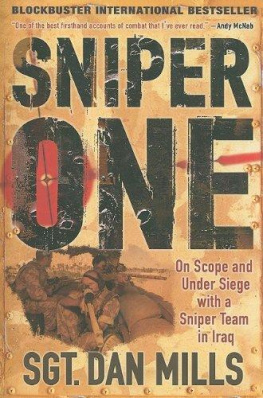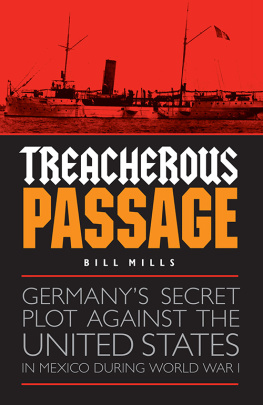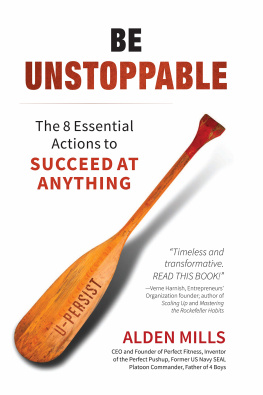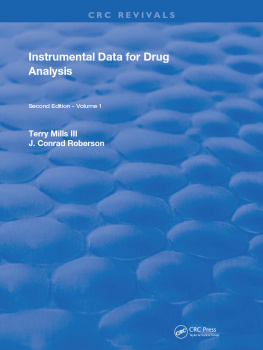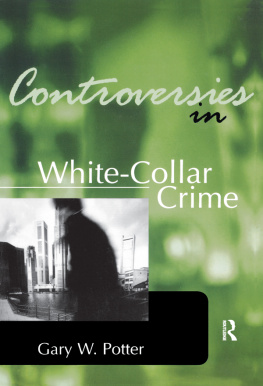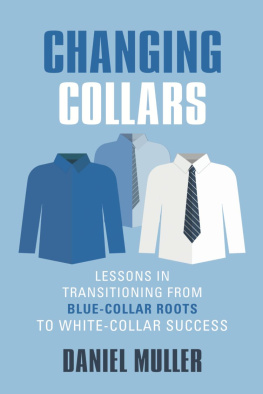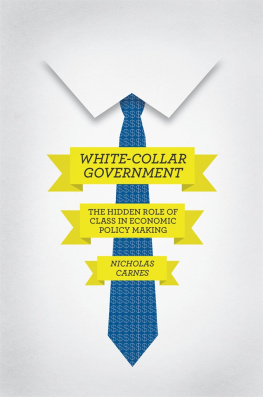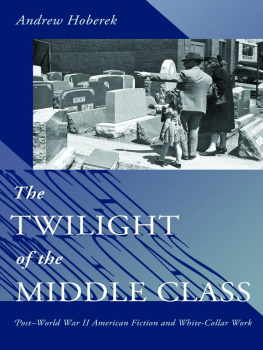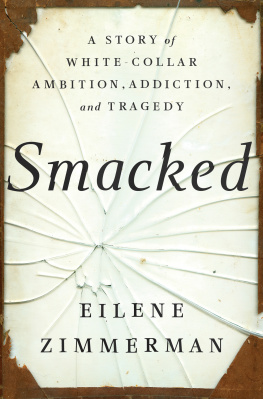Mills - White collar: the American middle classes
Here you can read online Mills - White collar: the American middle classes full text of the book (entire story) in english for free. Download pdf and epub, get meaning, cover and reviews about this ebook. City: New York;Oxford;United States, year: 2003, publisher: Oxford University Press, genre: Politics. Description of the work, (preface) as well as reviews are available. Best literature library LitArk.com created for fans of good reading and offers a wide selection of genres:
Romance novel
Science fiction
Adventure
Detective
Science
History
Home and family
Prose
Art
Politics
Computer
Non-fiction
Religion
Business
Children
Humor
Choose a favorite category and find really read worthwhile books. Enjoy immersion in the world of imagination, feel the emotions of the characters or learn something new for yourself, make an fascinating discovery.

- Book:White collar: the American middle classes
- Author:
- Publisher:Oxford University Press
- Genre:
- Year:2003
- City:New York;Oxford;United States
- Rating:3 / 5
- Favourites:Add to favourites
- Your mark:
- 60
- 1
- 2
- 3
- 4
- 5
White collar: the American middle classes: summary, description and annotation
We offer to read an annotation, description, summary or preface (depends on what the author of the book "White collar: the American middle classes" wrote himself). If you haven't found the necessary information about the book — write in the comments, we will try to find it.
White collar: the American middle classes — read online for free the complete book (whole text) full work
Below is the text of the book, divided by pages. System saving the place of the last page read, allows you to conveniently read the book "White collar: the American middle classes" online for free, without having to search again every time where you left off. Put a bookmark, and you can go to the page where you finished reading at any time.
Font size:
Interval:
Bookmark:
WHITE COLLAR
The American Middle Classes
The American Middle Classes
Fiftieth Anniversary Edition
with a new afterword by Russell Jacoby
C. Wright Mills


Oxford New York
Auckland Bangkok Buenos Aires Cape Town Chennai
Dar es Salaam Delhi Hong Kong Istanbul Karachi Kolkata
Kuala Lumpur Madrid Melbourne Mexico City Mumbai Nairobi
So Paulo Shanghai Singapore Taipei Tokyo Toronto
Copyright 1951, 2002 by Oxford University Press, Inc.
Afterword copyright 2002 by Russell Jacoby
This is the Fiftieth Anniversary edition of White Collar
Published by Oxford University Press, Inc.
198 Madison Avenue, New York, NY 10016
www.oup.com
First published by Oxford University Press, New York, 1951
First issued as an Oxford University Press paperback, 1956
Oxford is a registered trademark of Oxford University Press
All rights reserved. No part of this publication may be reproduced, stored in a retrieval system, or transmitted, in any form or by any means, electronic, mechanical, photocopying, recording, or otherwise, without the prior permission of Oxford University Press.
Library of Congress Cataloging-in-Publication Data
Mills, C. Wright (Charles Wright), 19161962.
White collar : the American middle classes / C. Wright Mills.
50th anniversary ed. / with a new afterword by Russell Jacoby.
p. cm.
Originally published: New York : Oxford University Press, 1951.
Includes bibliographical references and index.
ISBN 0-19-515708-7
I. Middle classUnited States.
I. Title.
HT690.U6 M5 2002
305.550973dc21 2002070042
1 3 5 7 9 8 6 4 2
Printed in the United States of America
No one could suspect that times
were coming... when the man who
did not gamble would lose all the
time, even more surely than he who
gambled.
CHARLES PGUY
THE white-collar people slipped quietly into modern society. Whatever history they have had is a history without events; whatever common interests they have do not lead to unity; whatever future they have will not be of their own making. If they aspire at all it is to a middle course, at a time when no middle course is available, and hence to an illusory course in an imaginary society. Internally, they are split, fragmented; externally, they are dependent on larger forces. Even if they gained the will to act, their actions, being unorganized, would be less a movement than a tangle of unconnected contests. As a group, they do not threaten anyone; as individuals, they do not practice an independent way of life. So before an adequate idea of them could be formed, they have been taken for granted as familiar actors of the urban mass.
Yet it is to this white-collar world that one must look for much that is characteristic of twentieth-century existence. By their rise to numerical importance, the white-collar people have upset the nineteenth-century expectation that society would be divided between entrepreneurs and wage workers. By their mass way of life, they have transformed the tang and feel of the American experience. They carry, in a most revealing way, many of those psychological themes that characterize our epoch, and, in one way or another, every general theory of the main drift has had to take account of them. For above all else they are a new cast of actors, performing the major routines of twentieth-century society:
At the top of the white-collar world, the old captain of industry hands over his tasks to the manager of the corporation. Alongside the politician, with his string tie and ready tongue, the salaried bureaucrat, with brief case and slide rule, rises into political view. These top managers now command hierarchies of anonymous middle managers, floorwalkers, salaried foremen, county agents, federal inspectors, and police investigators trained in the law.
In the established professions, the doctor, lawyer, engineer, once was free and named on his own shingle; in the new white-collar world, the salaried specialists of the clinic, the junior partners in the law factory, the captive engineers of the corporation have begun to challenge free professional leadership. The old professions of medicine and law are still at the top of the professional world, but now all around them are men and women of new skills. There are a dozen kinds of social engineers and mechanical technicians, a multitude of girl Fridays, laboratory assistants, registered and unregistered nurses, draftsmen, statisticians, social workers.
In the salesrooms, which sometimes seem to coincide with the new society as a whole, are the stationary salesgirls in the department store, the mobile salesmen of insurance, the absentee salesmenad-men helping others sell from a distance. At the top are the prima donnas, the vice presidents who say that they are merely salesmen, although perhaps a little more creative than others, and at the bottom, the five-and-dime clerks, selling commodities at a fixed price, hoping soon to leave the job for marriage.
In the enormous file of the office, in all the calculating rooms, accountants and purchasing agents replace the man who did his own figuring. And in the lower reaches of the white-collar world, office operatives grind along, loading and emptying the filing system; there are private secretaries and typists, entry clerks, billing clerks, corresponding clerksa thousand kinds of clerks; the operators of light machinery, comptometers, dictaphones, addressographs; and the receptionists to let you in or keep you out.
Images of white-collar types are now part of the literature of every major industrial nation: Hans Fallada presented the Pinnebergs to pre-Hitler Germany. Johannes Pinneberg, a bookkeeper trapped by inflation, depression, and wife with child, ends up in the economic gutter, with no answer to the question, Little Man, What Now?except support by a genuinely proletarian wife. J. B. Priestley created a gallery of tortured and insecure creatures from the white-collar world of London in Angel Pavement. Here are people who have been stood up by life: what they most desire is forbidden them by reason of what they are. George Orwells Mr. Bowling, a salesman in Coming Up for Air, speaks for them all, perhaps, when he says: Theres a lot of rot talked about the sufferings of the working class. Im not so sorry for the proles myself... The prole suffers physically, but hes a free man when he isnt working. But in every one of those little stucco boxes theres some poor bastard whos never free except when hes fast asleep and dreaming that hes got the boss down the bottom of a well and is bunging lumps of coal at him. Of course the basic trouble with people like us is that we all imagine weve got something to lose.
Kitty Foyle is perhaps the closest American counterpart of these European novels. But how different its heroine is! In America, unlike Europe, the fate of white-collar types is not yet clear. A modernized Horatio Alger heroine, Kitty Foyle (like Alice Adams before her) has aspirations up the Main Line. The book ends, in a depression year, with Kitty earning $3000 a year, about to buy stock in her firm, and hesitating over marrying a doctor who happens to be a Jew. While Herr Pinneberg in Germany was finding out, too late, that his proletarian wife was at once his life fate and his political chance, Kitty Foyle was busy pursuing an American career in the cosmetics business. But twenty-five years later, during the American postwar boom Willy Loman appears, the hero of
Next pageFont size:
Interval:
Bookmark:
Similar books «White collar: the American middle classes»
Look at similar books to White collar: the American middle classes. We have selected literature similar in name and meaning in the hope of providing readers with more options to find new, interesting, not yet read works.
Discussion, reviews of the book White collar: the American middle classes and just readers' own opinions. Leave your comments, write what you think about the work, its meaning or the main characters. Specify what exactly you liked and what you didn't like, and why you think so.

